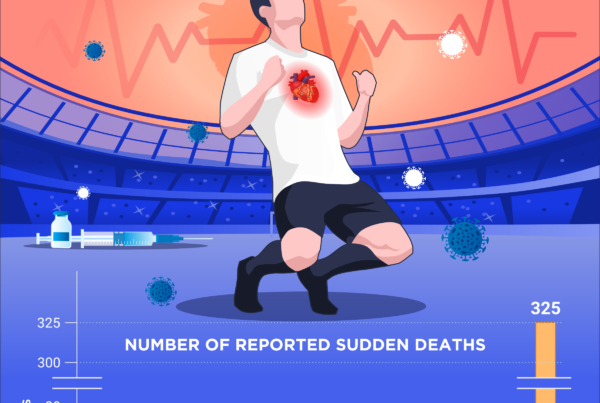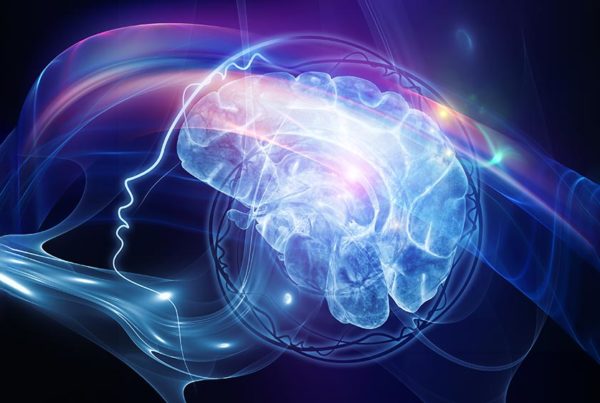It was around 1972 that I first experienced the wonders of super high fat burning and ketosis. It occurred during a two week fast (water only). Although a busy student and working part time in a fancy steakhouse restaurant, my energy levels soared, sleep was more restful, creativity and other brainpower improved in an amazing way. Little did I know that this experience would play an important role in helping future patients improve fat burning and overall health and fitness.
Long before glucose was the primary energy for the human body, fat burning was a key component of our physiology. Paleolithic ancestors enjoyed a diet high in fat with adequate protein and little carbohydrate. It was the ultimate natural therapy—the perfect eating plan that got us to where we are today. Of course, it was the only menu as no other foods were available, or required.
Millions of years later, this same eating plan has been “discovered” once again to have therapeutic benefits.
Just like we can raise the amount of fat we use for energy by reducing insulin, ketones follow the same pattern too, with their production increasing as carbohydrate intake is further diminished. This offers huge benefits for the body.
Ketones are a key energy source for the liver, brain, intestines and other body areas. The increased fat available to the aerobic muscles for faster activity and for longer periods can improve endurance. In addition, there is a real potential for increased health and fitness on many other levels. Here are some of them.
Exercising Muscle
The state of nutritional ketosis influences the body to use more fat for fueling muscles. In doing so, glycogen is conserved. This is important during competition, and for maintaining stable blood sugar during sleep.
Increased fat and ketone burning also reduces the body’s reliance on food and carbohydrate drinks during long training and competition. In a recently published scientific paper (“Rethinking fat as a fuel for endurance exercise,” European Journal of Sport Science, 2014) the authors state: “Common lore dictates consuming about 6000 kcal of carbohydrates during a competitive 100-mile race, but low-carbohydrate runners commonly finish (and often now win) these events on 1500 or less ‘in-race’ calories.”
Some athletes who develop their fat burning aerobic system very well don’t require any added nutrient. For example, World Champion Hal Walter relied only on water and his stored body fat for fuel for more than five hours of rigorous running in 2014 to win another World Championship Pack Burro Race.
Inflammation and Free Radicals
The significant reduction in dietary carbohydrate also dramatically influences the body’s balance of the inflammatory mechanism. The reason is simple: lower insulin reduces the production of inflammatory chemicals. This can reduce physical injuries, which are often associated with “itis” conditions such as tendonitis, plantar fasciitis, and arthritis, and problems elsewhere in the body such as gastritis, colitis and others. Ketones also have a positive effect in controlling our genes, and in regulating free radicals to help speed recovery from a workout, a race or a season.
Speedy Recovery
Because high fat burning and increased ketone bodies reduce inflammation and oxidative stress, we can recover faster from physical activity. This can even help us better tolerate the other stresses of life too. Without a healthy body, recovery takes longer because of increased production of free radical stress. But with increased fat burning and more ketones, athletes could train better, race more often, and increase performance—the trifecta of endurance sports.
Reduced Body Fat/Weight Loss
Many of my articles refer to the benefits of increased fat burning for weight loss and reductions in stored body fat (see The Fat Burning Journal).
Transitioning from moderate or high carbohydrate diet to a very low carb/adequate protein and higher fat regime can take a various amount of time depending on the individual. While the beneficial changes begin quickly, they can take up to two weeks or more to occur. The complete change may take a couple of months or more. So if you tried the Two-Week Test or eliminating junk food and you didn’t feel great, you may not have continued the process long enough. Not eating enough fats or total calories, not eating frequently, or cheating here and there are other reasons for little or no success.
With very low carbohydrate intake the levels of ketone bodies rise significantly. During this period of ketosis, some people experience bad breath. This is due to the release of a ketone body called acetone into the lungs where it is exhaled. The concentration of breath acetone may correlate with another key ketone, β-hydroxybutyrate, in the blood. However, once well adapted to increased fat burning and ketosis, the bad breath should be much reduced or eliminated.
The Brain
For about a hundred years, medicine has used a high fat-burning ketosis state to treat epilepsy in children and adults. This condition includes seizures, a serious sign of brain injury. Those who are successful can often reduce or eliminate the need for medication. However, since the development of antiepileptic drugs starting in 1930, these medications became the more convenient therapy despite “the continued failure of even newer drugs to offer significantly enhanced clinical efficacy” (Jasper’s Basic Mechanisms of the Epilepsies, 2012).
The increased use of ketones and decreased reliance of glucose in the brain also provides other recognized benefits referred to as neuroprotection. From Alzheimer’s disease and other cognitive dysfunction to Parkinson’s, most brain problems are preventable. Protecting the brain is one way to accomplish this, and a healthy eating plan promoting high fat and ketosis can have great value. Other brain and head conditions that have responded well to ketosis include headache, traumatic brain injury, sleep disorders, cancer, autism, and multiple sclerosis.
Another important feature of eating well is a high-energy brain that’s creative with great stamina, not to mention better learning and concentration.
Cardiovascular Disease
Lower carbohydrate intake can quickly and significantly reduce a variety of cardiovascular risk factors. Reductions in triglycerides occur rapidly in patients with high levels, typically within a few days. In addition, maintaining a reduction in carbohydrate intake can significantly balance cholesterol, lowering LDL and raising HDL, further reducing cardiovascular risk. Some individuals respond to modest amounts of carbohydrate reductions, while other must go further along the spectrum to ketosis for this to occur.
Low carbohydrate intake also quickly lowers insulin, which can significantly reduce abnormally high blood pressure. People should be cautioned that this sometimes happens in a few days too. Those with hypertension who are performing the Two-Week Test or just going off carbs “cold turkey” should monitor their blood pressure carefully. A health professional can do this while adjusting or eliminating medication as blood pressure normalizes.
Carbohydrate Intolerance
Whether diabetes, insulin resistance, low blood sugar or other names associated with the inability to properly metabolize glucose and insulin, these problems can change rapidly in response to healthy eating. By shifting metabolism to increase fat burning significant improvements in overall health follow. In fact, carbohydrate intolerance can diminish to the point where patients can live healthy lives often with reduced or no medications, including insulin. These changes can often take place very quickly too.
The Gut
By reducing carbohydrate intake, intestinal stress is often reduced too. Starches and disaccharides can impair gut bacteria, not to mention cause a high amount of gas production.
Athletes who no longer need large amounts of carbohydrate during training and racing also get relief with significantly less gut stress. In addition, because of reduced free radical stress and lower levels of inflammation, those who consume less carbohydrate foods may have overall healthier intestinal tracts, often able to rid themselves of conditions such as colitis, gastritis and other chronic gut disorders.
Aging
Sure, the addition of ketones to a high fat burning state offers many additional health and fitness benefits. An even more amazing advantage is the effect on aging. In addition to improving the areas of the body discussed above, two other factors play a key role in reducing physiological age:
As low carbohydrate intake elevates ketone bodies, there is a significant reduction of oxidative (free radical) stress. This could be a healthy way to influence longevity.
With a higher amount of fat calories consumed, many people eating low carb with adequate protein meals eventually require less food intake to maintain great energy levels. The result is a reduction in total calories over the course of a typical day. Caloric restriction is a popular theory that has been shown in test animals to biologically slow the aging process.
With such benefits—and there are others, such as hormone balance—many of which occur within days or weeks, it would seem everyone would want to eat well. What may be the two most common reasons for people unable to maintain a healthy diet are sugar addiction and fat-phobia.
The macronutrient makeup of our diet dictates the energy sources. On one end of the spectrum, poor eating habits maintain our dependency on glucose for energy with a fat-storing, unhealthy metabolism. But by reducing carbohydrate foods we move along the spectrum to burn higher amounts of fat for energy, reduce body fat, and improve health. Moving further along the spectrum by lowering insulin even more, ketone bodies elevate considerably and contribute significantly to our energy needs, with additional fat burning raising endurance, and health, to even higher levels. Our spot on the energy spectrum is all in our hands.








